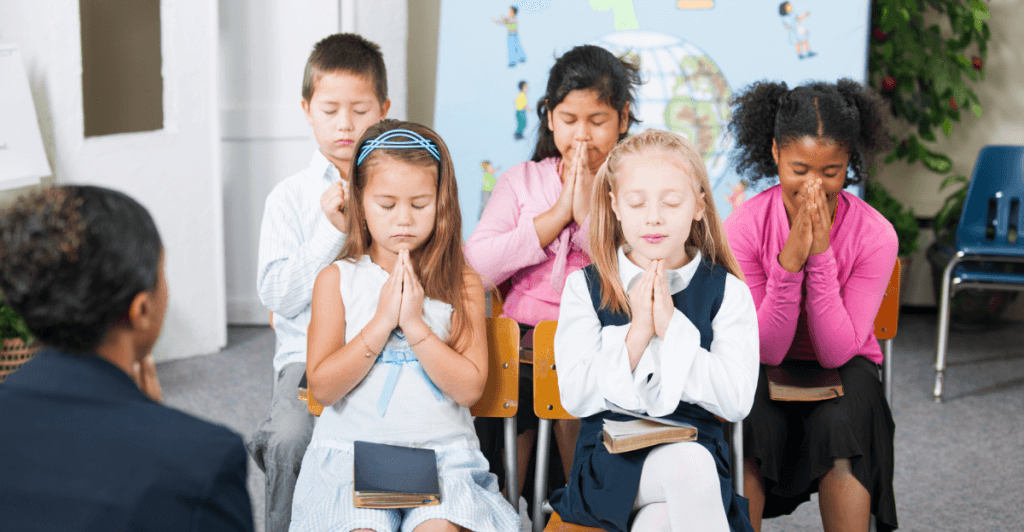When you walk through your child’s school corridors, you’ll notice something wonderful: children from countless different faiths learning side by side. This rich tapestry of beliefs presents both opportunities and challenges. How do you help your children embrace this diversity whilst staying true to your own values?
Starting Conversations That Matter
Your kitchen table becomes a powerful classroom when you encourage questions about faith. Children naturally wonder why their friend doesn’t eat certain foods or why another classmate prays at different times. These moments of curiosity are precious. Don’t brush them aside.
When your seven-year-old asks why Amira covers her hair, or your ten-year-old wonders about the symbols on Dylan’s necklace, lean into these conversations. Explain that different families have different ways of showing their love for God. Some families light candles, others face certain directions when they pray. What matters is helping your child see the beauty in this variety.
Foster children often bring different religious experiences into your home. Perhaps you foster with Active Care Solutions and have been matched with children who share your Anglican background. Or maybe you’re caring for a child whose family practised Buddhism. Either way, you have a chance to show genuine interest in their spiritual journey whilst sharing your own.
School Partnerships That Work
Your child’s teacher wants to create an inclusive classroom. Work with them. Ask how they handle religious festivals and whether there are ways you can contribute. Some parents share traditional foods during Eid celebrations. Others explain the story behind Christmas nativity plays.
Schools often struggle with the practicalities of religious diversity. Can your Muslim daughter participate in the harvest festival assembly? Should your Christian son sit out during the Diwali workshop? These aren’t black-and-white decisions. Talk with teachers about finding middle ground that respects everyone’s beliefs whilst keeping children involved.
Your children need your guidance on participation. Teach them that watching respectfully shows good manners. They don’t have to believe everything they see, but they can appreciate the joy these celebrations bring their friends.
When Things Get Tricky
Sometimes other children say thoughtless things about different religions. Your child might come home upset because someone called their friend’s turban “silly” or made fun of kosher dietary rules. These incidents sting, but they’re also opportunities.
Help your child practise responses. “That’s not silly, it’s just different from what we do” works well for younger children. Older ones might say, “Actually, I think it’s quite interesting how different families worship.”
Some children face more serious challenges. Religious bullying happens. If your child experiences this, or witnesses it happening to others, take action quickly. Contact the school. These situations require adult intervention.
You might worry about your own child being questioned about their beliefs. Prepare them with simple, confident answers. “We go to church because we believe in Jesus” or “We celebrate Hanukkah because we’re Jewish” gives children solid ground to stand on.
Build Lasting Values
The lessons you teach about religious respect ripple outwards. Your children carry these attitudes into secondary school, university, and their future workplaces. They’ll raise their own children with these values.
Some families worry that learning about other religions might weaken their own faith. Actually, the opposite often happens. Children who understand different beliefs usually develop stronger, more thoughtful relationships with their own traditions.
Raising children who respect religious differences isn’t about watering down your own beliefs. It’s about showing them that faith matters deeply to people, and that it deserves respect, even when the specifics differ from your own family’s practices. Your children can remain proud of their heritage whilst celebrating the rich diversity that surrounds them every school day.
As a company committed to foot-health and comfort, we work with a dedicated manufacturer of children’s boots to ensure that kids of all faiths walk into school each day with confidence.
Cassia Rowley is the mastermind behind advertising at The Bad Pod. She blends creativity with strategy to make sure ads on our site do more than just show up—they spark interest and make connections. Cassia turns simple ad placements into engaging experiences that mesh seamlessly with our content, truly capturing the attention of our audience.


